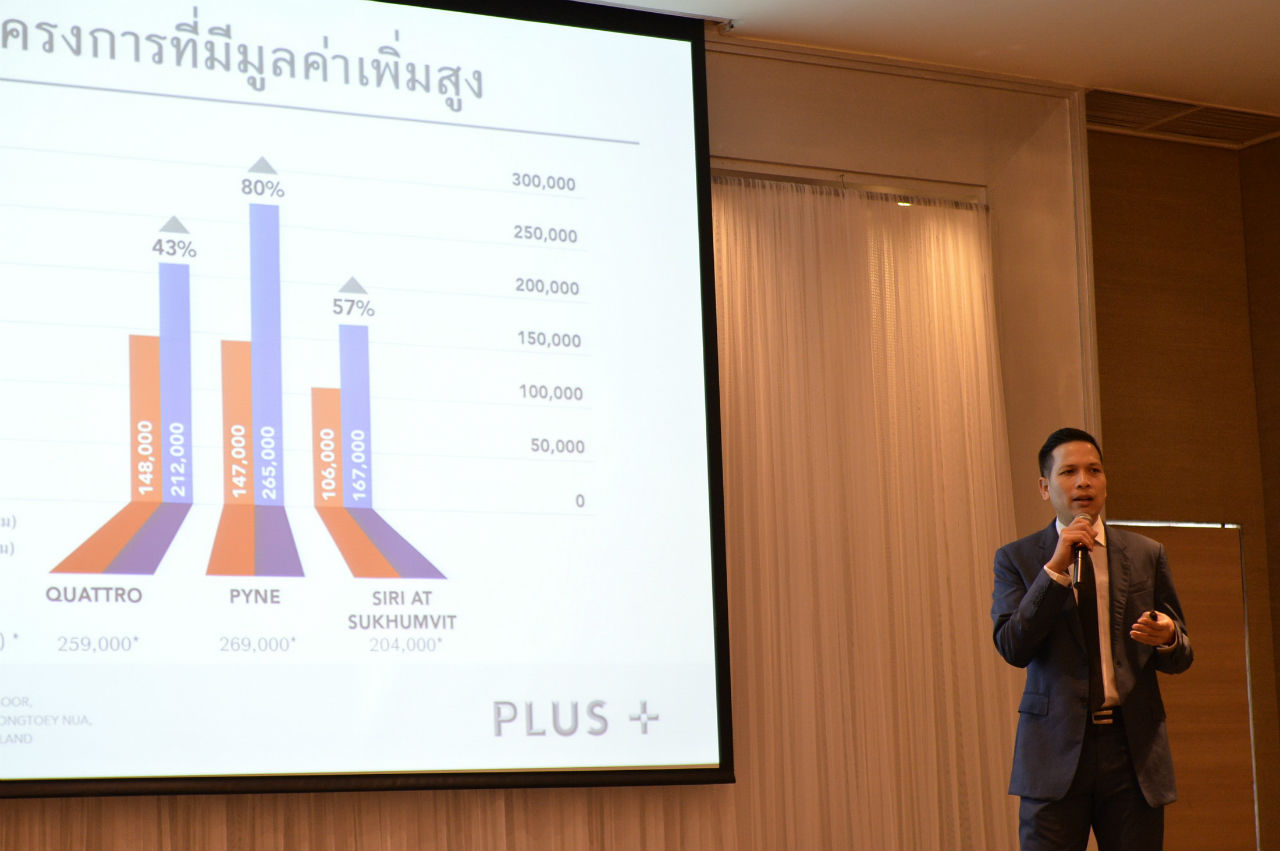Plus Property believes it will see modest growth in 2016 as the property market in Thailand continues to recover. The consultancy earns its revenue from asset management and property sale services as well as facilities management throughout the country.
Plus Property’s revenue is expected to increase by five to ten percent this year after jumping an impressive 31 percent in 2015, said managing director Poomipak Julmanichoti. At the moment the company manages 185 property projects in Thailand. The rise in revenue last year was attributed to company’s prudent management of its three service areas. And while the company is not expecting to match the growth numbers seen last year, the property market is showing some encouraging signs which leads Plus Property to believe that it will continue to see growth in 2016.
“Real estate market sentiment in the first half is expected to be buoyed by the government’s stimulus measures,” Poomipak explained. “Residential projects priced below THB3 million in peripheral Bangkok will also benefit from low interest rates and infrastructure projects, particularly the government-backed mass transit projects such as the Orange Line (Thailand Cultural Centre-Min Buri), Pink Line (Khae Rai-Min Buri), Purple Line (Tao Pun to Rat Burana) and Yellow Line (Lat Phrao-Samrong), which will contribute to opportunities for growth.”
Another positive factor comes from regional economic integration that is driving growth in leasing in major provinces throughout Thailand. The luxury property market also continues it strong performance and is another encouraging sign for the consultancy.
“The outlook for customers’ purchasing power is adequate, but affordability among high-end consumers is great, as seen from sales of luxury property projects,” he stated. “In addition, some investors also look to invest in properties abroad in cities such as New York and London where foreigners can own the properties 100 percent, unlike in Thailand.”
A number of risk factors could negatively impact the property market this year, however. These concerns include high household debt, drought, the domestic and global economic situations that require careful approaches, and higher land prices due to new land appraisals for 2016-19 that may push up the cost of residential units, Poomipak added.



